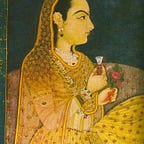A Lonely Activity
Aria Aber is the recipient of the 2019 Prairie Schooner Book Prize in Poetry. Her debut book Hard Damage, published in September 2019, has won numerous prizes. Her poems are forthcoming or have appeared in The New Yorker, New Republic, Kenyon Review, The Yale Review, Poem-A-Day, Narrative, Muzzle Magazine, Wasafiri and elsewhere. Her website provides a sharp analysis:
“Hard Damage works to relentlessly interrogate the self and its shortcomings. In lyric and documentary poems and essayistic fragments, Aria Aber explores the historical and personal implications of Afghan American relations. Drawing on material dating back to the 1950s, she considers the consequences of these relations — in particular the funding of the Afghan mujahedeen, which led to the Taliban and modern-day Islamic terrorism — for her family and the world at large.
Invested in and suspicious of the pain of family and the shame of selfhood, the speakers of these richly evocative and musical poems mourn the magnitude of citizenship as a state of place and a state of mind. While Hard Damage is framed by free-verse poetry, the middle sections comprise a lyric essay in fragments and a long documentary poem. Aber explores Rilke in the original German, the urban melancholia of city life, inherited trauma, and displacement on both linguistic and environmental levels, while employing surrealist and eerily domestic imagery.”
In an interview, Aber discusses themes of her work, techniques, and experiences that impact her writing. On formulating , she expands on a metaphor for beginnings, referring to author Fatima Farheen Mirza:
“But the idea that it is a door through which we walk is an image I came upon while talking to my dear friend, and incredible writer, Fatima Farheen Mirza, who published her debut A Place for Us in 2018. She assisted me during the emotional turmoil of first-book publication, even though she was, in many ways, still going through the process herself.”
She shares her focus on sound and word construction, “a balance of consonance and assonance when there’s excessive imagery present” and personal experiences that inform her poems. Themes of spirituality, heritage, and trauma interlace to create moving sounds that stay with the reader.
“Personally, I’ve always believed in God, or a spiritual nature: it’s my innate belief that there is more to the world than we can see, that there is a benevolent force connecting us to all living beings, and that we have responsibility to each other. My speakers grapple with faith because the world seems like a horrible place, and that responsibility toward one another is, most of the time, not respected.
.
I grappled with being Afghan, with being from a different culture than most of my friends at the time. I didn’t see myself reflected in pop culture or in the literature I was obsessively reading. All of this happened in a small Catholic town in Germany and people weren’t very politically correct or sensitive at that time. Most of my life I was faced with subtle and overt racism; I didn’t have the language to define it then. In retrospect, it was traumatizing. Maybe there was an injury of spirit that needed to be healed.”
Aber’s observations of her relationship with language struck me as jarring, something I’ve known but is still difficult to face-that English is a violent language, the language of oppression and colonization. Is it a type of violence that we wield now because some of our languages have faded from us, or has English been appropriated into something new after experiencing the violence against native language?
Aber also comments that being bilingual and multilingual is a privilege, and being trilingual “provides me with many more images, symbols, sayings, melodies, peculiarities.”
A constant wrestling and molding comes to mind. Other poets and writers can help to frame the relationship to English, integrating history and being critical witnesses. For now, we look forward to reading more from Aria Aber.
You can read “The Ceremony” here.
Sources:
